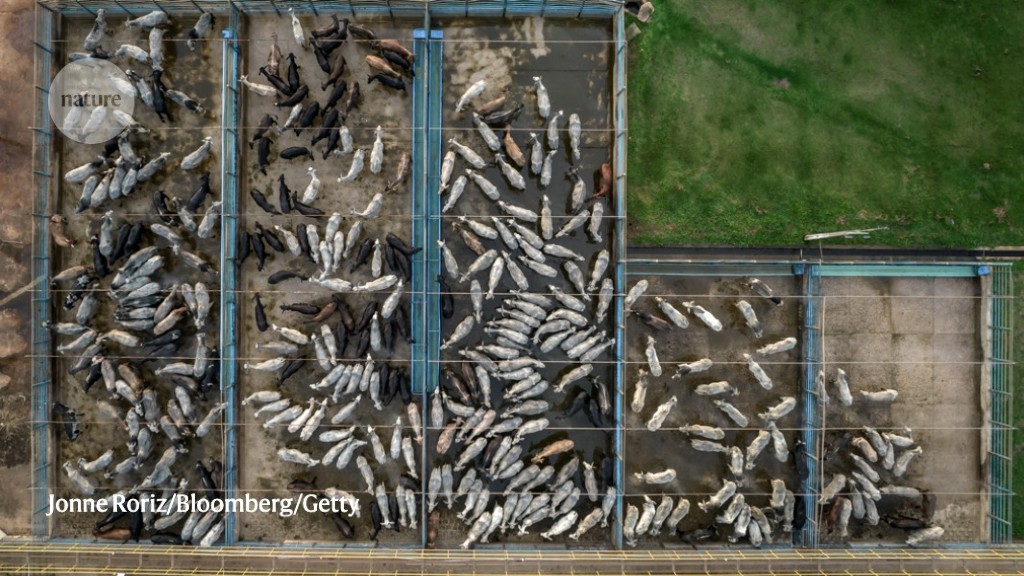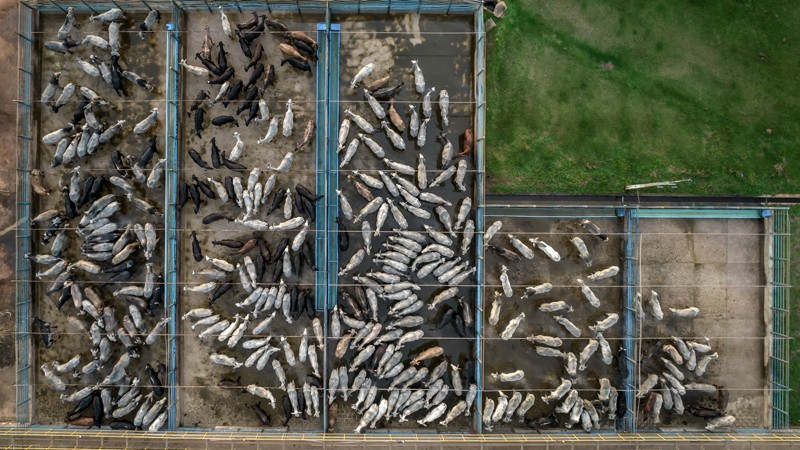In the run-up to the United Nations climate summit in Glasgow, UK, last year, many of the world’s most powerful businesses joined governments in pledging to reduce their carbon emissions to zero in the coming decades. But an analysis of publicly available corporate documents, such as annual sustainability reports, shows that 25 of those companies — which together are responsible for about 5% of global emissions — are actually making much less of a commitment.
Just 3 of the 25 companies — the Danish shipping giant Maersk, the UK communications firm Vodafone and the German telecommunications company Deutsche Telekom — have clearly committed to deep decarbonization, according to the NewClimate Institute. The science think tank, which has its headquarters in Cologne, Germany, published the analysis in collaboration with the non-profit organization Carbon Market Watch, based in Brussels. Thirteen of the 25 provide detailed plans that would, on average, curb emissions by just 40%, rather than 100%, over the next few decades; the other 12 companies have provided no clear details about their commitments.
The report underscores long-standing worries among scientists, environmentalists and policymakers about how to assess and monitor corporate climate commitments. This is particularly true for net-zero pledges, which could allow companies — as well as countries — to ‘offset’ their continued greenhouse-gas emissions by investing in forestry and carbon-capture projects, for example, that pull carbon out of the atmosphere.
Various programmes, including the Net Zero Tracker, which involves academic groups and climate-advocacy groups such as NewClimate, have arisen to fill the information void, by creating standards and rating pledges. But scientists say that the proliferation of efforts has led to confusion, as well as sometimes questionable results.
António Guterres, the United Nations’ secretary-general, publicly expressed similar concerns during the Glasgow summit. In the coming weeks, he is expected to appoint an expert panel to craft clear standards for measuring and analysing climate commitments from corporations and other non-national entities such as cities and states. That is a step in the right direction, says Surabi Menon, a climate scientist at the ClimateWorks Foundation, a philanthropic organization based in San Francisco, California.
Without mandating that companies disclose carbon emissions and policies, “accountability is in the eye of the beholder”, Menon says. Ultimately, what is needed to monitor the aggressive climate action that countries and companies are promising over the next decade, she says, is an integrated tracking system for corporate and government commitments, as well as for offsets and emissions. “And it needs to happen quickly.”
Climate ledgers
Climate scientists warn that severe fires, droughts, floods and other consequences of climate change will continue to increase in severity and frequency until governments halt greenhouse-gas emissions. And for governments to fulfil their pledges, the climate actions of companies within their borders will be crucial.
The companies that NewClimate picked for its analysis represent a cross-section of industries — and have a huge influence on society and the global economy. “We’ve now set a very high bar for these companies, and this is an open invitation for them to improve,” says Sybrig Smit, a climate-policy analyst and co-author of the report.
Although many of the 25 companies assessed by NewClimate have committed to reducing emissions from internal operations, few fully own up to broader environmental impacts such as energy consumption caused by the use of their products, the analysis found. The Brazilian food giant JBS, for instance, has committed to ensuring that its beef operations do not contribute to deforestation, Smit says. But in publicly available documents, the company reports only emissions from its own operations and not those from its broader network of suppliers. JBS did not immediately respond to Nature’s request for comment.
The report also raises questions about independent rating systems. For instance, the Science Based Targets initiative (SBTi) has rated the near-term climate pledges of nearly 800 companies as being compatible with the 2015 Paris agreement goal of limiting global warming to 1.5 °C above pre-industrial temperatures. Eighteen of the 25 companies in NewClimate’s analysis have targets that have been approved by SBTi, but the report says that in most cases those ratings are “either contentious or inaccurate due to various subtle details and loopholes that significantly undermine the companies’ plans”.
Although his team is still evaluating the report, SBTi’s managing director, Alberto Carrillo Pineda, says that some of the discrepancies arise from the fact that SBTi has a more flexible approach, tailored to the particular circumstances of individual companies. Nonetheless, he welcomed the critique and said that SBTi is already addressing some of the concerns through its new Net-Zero Standard framework, which will be used to evaluate companies’ long-term pledges.
Positive feedback
Kaya Axelsson, a research fellow studying net-zero policies at the University of Oxford, UK, credits the report with pulling back the curtain to look at companies’ specific policies and the potential outcomes. This is where some of the rating systems come up short, she says. “What we’re often getting is a sense of how well [a company] answers a questionnaire, not whether or not they are truly taking decarbonization actions.”
Although academics, advocacy groups and business organizations are exploring various ways to help companies create and implement credible net-zero strategies, Axelsson says that the end game is rules and regulations that can be implemented by governments. As an example, she cites the United Kingdom’s move to require disclosure of the financial risks and opportunities posed by climate change from more than 1,300 of the country’s largest companies, beginning this year.
For Smit, the ultimate goal is to create a positive feedback loop whereby leading businesses can engage, learn and ultimately support government policies that are needed to ensure transformational change throughout the economy. “If the majors set the example, the rest will ultimately follow,” she says.






More News
Could bird flu in cows lead to a human outbreak? Slow response worries scientists
US halts funding to controversial virus-hunting group: what researchers think
How high-fat diets feed breast cancer